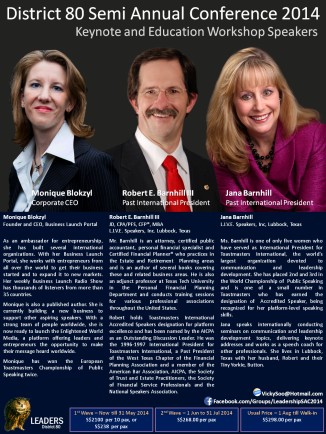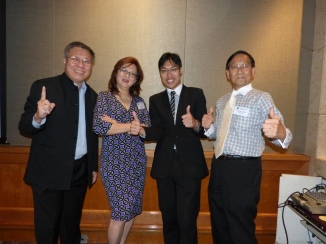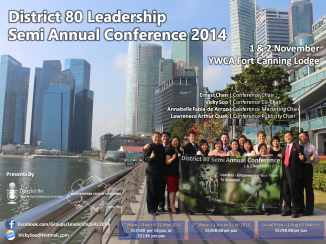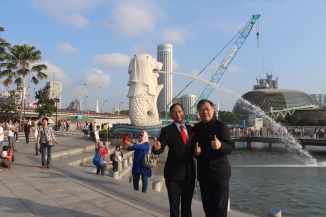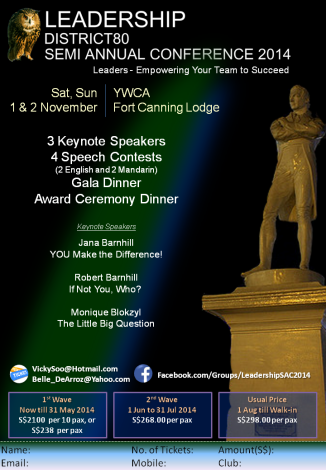
YOU Make the Difference! – Jana Barnhill
Do you dream of making a difference in your family? Your business? In Toastmasters?
While others may inspire and encourage you, Past International President and Accredited Speaker Jana Barnhill wants you to understand that in the end, YOU are the only one who can make it happen.
She will share how to have the right attitude and focus so that you can be confidant in knowing how YOU Make the Difference!
If Not You, Who? – Robert Barnhill
Today, our world is experiencing a leadership dearth. Our companies need people who are willing to accept the leadership challenge.
What does it take for a person to become an effective leader? How can you become part of the solution?
Past International President, Accredited Speaker, Robert Barnhill, DTM, will answer these questions and more as he presents, “If Not You… Who?”
The Little Big Question – How Leaders Succeed – Monique Blokzyl
What is the “little big question” every leader needs to ask? How can you translate big dreams into a powerful vision for your organization, and from there into a profound business plan?
They say, every team is only as good as its weakest member. How can you gather your dream team from all over the globe? And what keeps you going when times get tough?
This is the story of how the “little big question” can turn ordinary men into outstanding leaders.
